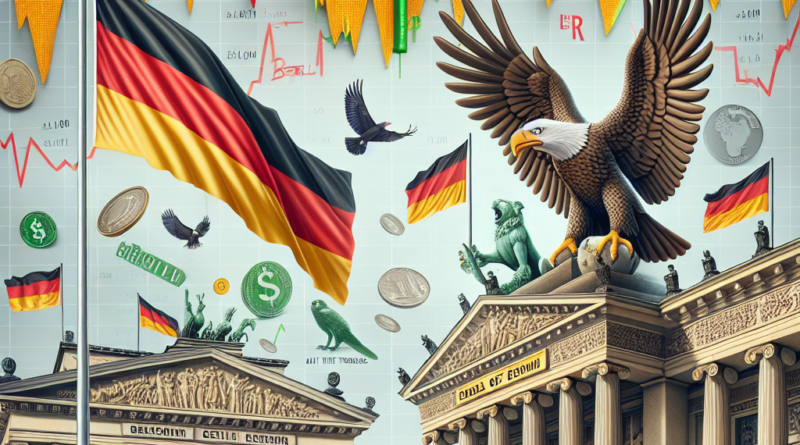Germany Faces Another Disastrous Week: The Troubles of Berlin
“`html
The Current Challenges Facing Germany
Germany is currently navigating a challenging landscape, beset with both political and economic obstacles.
Recent weeks have brought to light the vulnerabilities of a nation that once served as Europe’s driving force but now faces the troubling label of the “sick man of the EU.”
From the repercussions of the pandemic to the ongoing war in Ukraine, the energy crisis, and strained trade relations with China, along with the trials confronting the automotive industry, Germany has managed to stave off collapse but has not evaded a profound and structural crisis.
Evidence of Decline
Recent events, including surprising electoral outcomes in Thuringia, where the far-right made notable gains, highlight the fragility of Chancellor Scholz’s government.
The past few weeks have been catastrophic for German industry and banking, marking a dismal start to September.
Struggles in German Industry
The nation’s industrial giants are faltering.
Volkswagen, Germany’s largest car manufacturer, has expressed intentions to terminate a long-standing labor agreement and might consider shuttering domestic production due to declining demand.
In a similar vein, BMW has lowered its annual profit forecasts, acknowledging that Germany’s international standing continues to dwindle.
As noted in a Bloomberg analysis, the economic headwinds have been intensifying.
Germany’s manufacturing sector, the backbone of its economy, is grappling with reduced consumer demand from China, a vital export market.
The inflation surge has afflicted both households and businesses, with skyrocketing energy costs necessitating a reevaluation of gas procurement strategies following Russia’s withdrawal as a primary supplier.
Volkswagen, a key player reliant on China for profits, faces significant challenges as its market share diminishes amidst fierce competition from local rivals and electric vehicle pioneers like Tesla.
Following recent downturns, BMW has also been compelled to adjust its profit outlook due to decreased demand and a significant recall of cars because of faulty braking systems from Continental, a reputable component supplier.
The Banking Sector Woes
Germany’s corporate troubles extend beyond manufacturing.
Recently, UniCredit caught investors off guard by acquiring a 9% stake in Commerzbank, becoming its second-largest shareholder.
Commerzbank itself had previously required a government bailout during the financial crisis, and the news came shortly after an announcement of the German government’s intention to reduce its shareholding.
UniCredit now faces the task of aligning with key stakeholders in Germany, including government officials and labor representatives, who have voiced concerns regarding this acquisition amidst fears about fostering a strong economy.
Political Turmoil
The political sphere is equally bleak, with Scholz’s coalition government grappling with growing discontent over economic challenges.
This discontent manifested in the recent regional elections in Thuringia and Saxony, where support surged for the far-right AfD and a nascent left-wing party.
Upcoming elections in Brandenburg, surrounding Berlin, could see the AfD achieving significant success, prompting the government to implement stricter border controls and rejecting more asylum seekers in a dramatic shift from previous open-door policies.
Analysts suggest that these moves may be politically motivated attempts to curb right-wing opposition.
Such developments underscore a nation facing significant ideological and operational challenges.
The future for Germany appears uncertain and troubled.
“`

